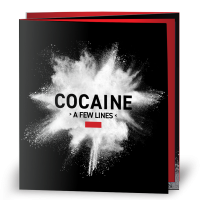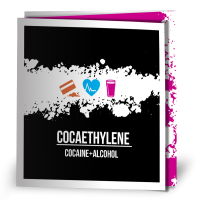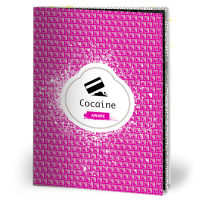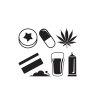What is cocaine?
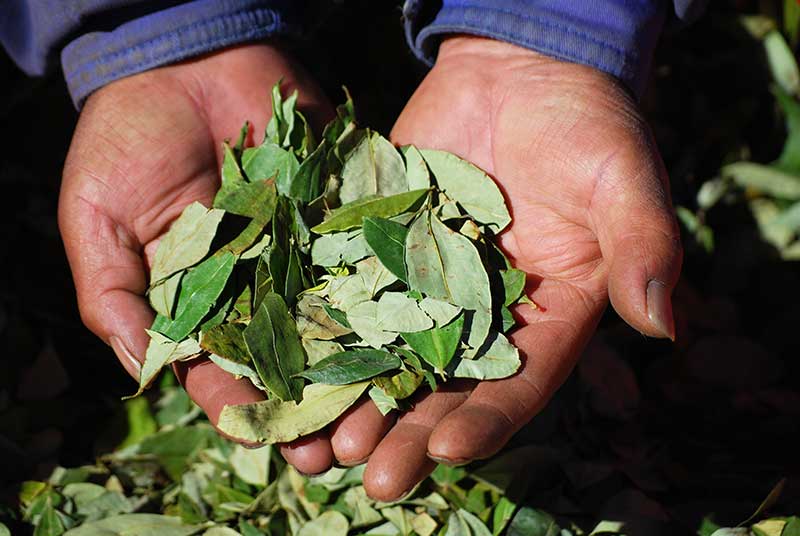
The dried out leaves of the coca plant. Coca leaves contain cocaine, which acts as a mild stimulant when chewed or brewed as tea. Archaeological evidence suggests coca chewing in South America began at least 8,000 years ago.
Cocaine is a stimulant drug made from coca leaves. Most production occurs in Colombia, Bolivia and Peru.
The leaves are processed to extract the drug, resulting in a white powder, the common UK form.
How cocaine is made
Cocaine production is a multi-stage process that starts with the coca plant and ends with the white powder known as cocaine hydrochloride.
First, workers harvest coca leaves from the Erythroxylum species. They then crush the leaves and soak them in a sequence of harsh chemicals: alkalis, such as lime or cement, followed by sulfuric acid, and finally hydrocarbon solvents, like kerosene or gasoline. This sequence of steps extracts a crude coca paste.
Next, producers purify the paste. They add oxidising agents, such as potassium permanganate, and filter the mixture to remove impurities, producing a more concentrated cocaine base. Some producers use additional purification steps with various solvents and chemicals to further refine the base.
Finally, the base is converted into cocaine hydrochloride, the salt form, by dissolving the base in a solvent such as acetone and adding hydrochloric acid to form solid cocaine hydrochloride crystals. After crystallisation, the cocaine hydrochloride is filtered out, dried, and milled into powder.
Source: European Union Drug Agency - Coca and cocaine production
What else is in cocaine?
To increase weight or change effects, cocaine is mixed with common additives, each of which carries its own health risk:
- Benzocaine – chosen because it is an anaesthetic that mimics cocaine’s numbing effects.
- Levamisole – an animal dewormer sometimes found in cocaine. It can damage the immune system and lead to severe skin problems.
- Lidocaine, caffeine and sugars – common additives that bulk out cocaine and mimic some numbing or stimulating effects.
- Phenacetin – a banned painkiller linked to kidney damage and cancer.
Fentanyl in cocaine
Some batches of cocaine have been found to be contaminated with fentanyl, a very strong opioid. Even tiny amounts can cause an overdose, especially as people using cocaine do not expect an opioid.
Reducing the risks:
- Reagent testing can help check whether a substance contains fentanyl or other dangerous adulterants.
- Carrying naloxone (an opioid overdose reversal medicine) can save lives if cocaine is unexpectedly contaminated.
- Do not use cocaine alone. If fentanyl contamination is present, having someone nearby could make a critical difference.
How pure is cocaine?
Street-level purity in the UK has risen over the past decade. Recent European data shows that average retail purity is often between 66% and 81%, with many samples testing at over 80% purity. At the same time, some very low-purity samples still appear on the market.
How is cocaine used?
Snorted
Powder cocaine is usually snorted through a rolled-up note, small tube or similar item. Some people also use the tip of a key (“keying”).
- Onset: within a few minutes
- Duration: around 30 minutes
Swallowing (bombing) cocaine
Swallowing cocaine doesn't work well and is rarely used. When you swallow cocaine your body's digestive system and liver break down most of the cocaine before it can take effect. This means you don't get the full hit and need to take much larger amounts compared to other methods.
- Onset: 30-60 minutes
- Duration: 60-90 minutes
Smoked
Cocaine can be processed into crack cocaine, a form that can be smoked. Smoking produces very rapid and intense effects that fade quickly, leading to repeated re-dosing.
- Onset: within seconds
- Duration: around 10 to 20 minutes
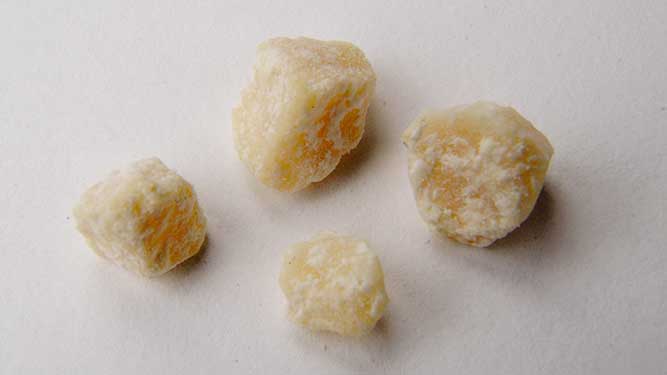
Small rocks of crack cocaine
Injected
Cocaine powder can be dissolved in water and injected. This carries particularly high risks, including vein damage, infections, blood-borne viruses and a much higher chance of overdose.
- Onset: almost immediate (seconds)
- Duration: around 20 to 30 minutes
Effects of cocaine
Cocaine affects the brain by stopping certain chemicals, like dopamine and noradrenaline, from being taken back up by nerve cells. This makes them build up, which can make you feel more confident, alert and energetic. At the same time, it speeds up your heart and breathing, putting extra strain on your body.
Positive effects can include
- Feeling confident, excited, alert or euphoric
Negative effects can include
- Feeling anxious, edgy, restless or paranoid
- Increased heartbeat and breathing
- Raised blood pressure and body temperature
- Enlarged pupils
Comedown and withdrawal
After effects wear off, brain levels of dopamine and adrenaline drop, causing:
- Fatigue and low mood
- Anxiety, irritability or paranoia
- Trouble concentrating
- Increased appetite and cravings
With heavy or regular use, comedown can last longer and cause more severe mood changes or hallucinations.
Risks and overdose
Signs of overdose can include:
- Heavy sweating
- Tremors
- Confusion or agitation
- Hyperactivity
- Seizures
- Stroke
- Irregular heartbeat
Overdose risk rises with frequent redosing or mixing with depressants.
Heatstroke, dehydration and heart strain are also risks, especially in nightlife settings.
Cocaethylene increases the chance of overdose
Combining cocaine and alcohol creates a chemical called cocaethylene in the liver. This substance stays in the body longer than cocaine, puts extra strain on the heart and liver and is more toxic than either drug alone.
Problems linked to cocaine use
Physical health
Cocaine strains the heart and blood vessels, raises body temperature and increases the risk of seizures or stroke.
Nose and sinuses
Snorting cocaine damages the lining of the nose. This can cause sneezing, congestion, runny nose and nosebleeds.
Mental health
Cocaine changes brain chemistry. When the effects wear off, you may feel low, anxious or paranoid. Regular use increases the likelihood of these feelings, and some people experience them even after stopping.
Dependency
Cocaine does not cause the same physical withdrawal as heroin or alcohol, but it can still lead to strong cravings and dependence. This may affect sleep, mood and energy, and can cause financial and emotional harm.
Debt
Tolerance builds quickly, meaning higher doses are often needed to get the same effect. This can lead to heavy spending and debt.
Reducing harm
The only way to avoid harm is not to use cocaine. If you do, these steps can reduce risks:
- Do not share straws, tubes or notes. Blood and mucus can carry infections like hepatitis and herpes. Using your own helps prevent these.
- Chop powder as finely as you can before snorting. This helps reduce harm to the inside of your nose.
- Always use a clean straw or tube and place it high in your nostril when snorting to minimise damage.
- Switch nostrils between uses to reduce damage and help recovery.
- Stop if your nose starts bleeding and take a break to allow healing.
- After a session, rinse the inside of your nose with saline spray or lukewarm water to clear out residue.
- Use smaller lines and allow time between doses. This lowers the risk of negative effects.
Staying in control
- Only buy what you plan to use in one session.
- When you finish, distract yourself with something that does not remind you of cocaine, such as seeing friends who do not use.
- Try to eat well and rest, as cocaine reduces appetite and sleep.
- Avoid mixing with alcohol or other drugs.
- If you feel agitated, overheated or confused, move to a cool, calm place and stay with someone you trust.
- Do not use every day. Spacing out sessions helps reduce harm and costs.
Cocaine and the law
Cocaine and crack are Class A drugs. It is illegal to possess, give away or sell them.
Further information and support
Cocaine resources
Browse our range of printed cocaine leaflets, booklets and posters
Cocaine resources
Talk to Frank
24-hour confidential drug advice for young people, parents and carers
📞 0300 123 6600
www.talktofrank.com
Release
Specialist drugs and legal advice
📞 020 7324 2989
www.release.org.uk
DrugWise
Evidence-based information on drugs, alcohol and tobacco
www.drugwise.org.uk
Crew (Scotland-based, UK-wide resources)
Harm reduction information and support
www.crew.scot
